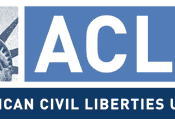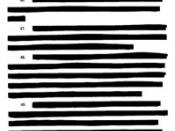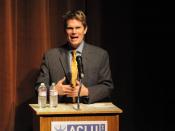Filtering Of Public Computers
The battle continues about whether public libraries should install filters on their computers in order to prevent children from accessing obscene or sexually explicit internet sites. According to the American Civil Liberties Union (ACLU), libraries prevent people from reaching many other internet sites when they install filters. Therefore, they are violating the first amendment rights of persons who use the computers (ODER 1). The battle over the use of internet filters came to a head in a legal challenge of the Children's Internet Protection Act, also known as (CIPA). (ODER 1)
After two weeks of graphic testimony, the trial over CIPA ended on April 4 in Philadelphia as the three-judge panel expressed their views about the law. (ODER 2) The American Library Association (ALA), the American Civil Liberties Union (ACLU), and website providers had challenged this law in a consolidated action based on an infringement of the right of freedom of speech of the adult users of library computer terminals.
(ODER 2)
It was evident at the trial that one side definitely favors the use of internet filters at public libraries. According to several librarians, who testified before the judges, filters do help to manage the pornography problem. (ODER 2) However, their own association, the ALA, argued against the use of internet filters. The case against internet filters was based on four main points. The first was that the filters do not work because they both over block and under block. Secondly, the Children's Internet Protection Act is unconstitutional because it blocks legal information. Thirdly, libraries should not have to choose censorship in order to receive funding. Fourthly, CIPA abolishes local decision-making, since most libraries, funding is local, and libraries are locally governed. (ODER 2) However, the Department of Justice contended that there...



Feedback:
what an interesting topic! obviously well researched, slightly biased but overall very well done!! next time remember to cite your sources..
2 out of 2 people found this comment useful.